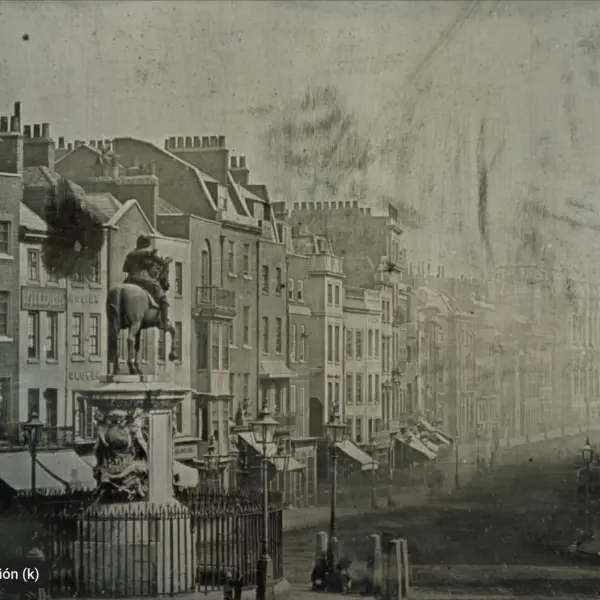Florence Nightingale by Henry Hering
Florence Nightingale, born on May 12, 1820, in Florence, Italy, was a pioneering nurse and social reformer known as "The Lady with the Lamp" for her role in improving healthcare standards, particularly during the Crimean War. Coming from a wealthy British family, Nightingale was educated in Europe and received an education in nursing, which was unconventional for women of her social class at the time.
In 1854, during the Crimean War, Nightingale was sent to tend to wounded soldiers in the British Army hospital in Scutari (modern-day Turkey). At that time, the hospital conditions were deplorable, with unsanitary practices contributing to high mortality rates. Nightingale implemented hygiene and sanitation reforms, including improved ventilation, proper disposal of waste, and better nursing care, which drastically reduced the death rate. Her work during the war made her a national hero.
After the war, Nightingale returned to England and continued to advocate for reforms in nursing and healthcare. She established the Nightingale Training School for Nurses at St Thomas' Hospital in London in 1860, providing formal training and elevating nursing to a respected profession. Her work laid the foundation for modern nursing practices, and she is considered the founder of modern nursing.
Nightingale also worked extensively on public health issues, focusing on sanitation and the improvement of hospitals. She used statistical analysis to demonstrate the connection between cleanliness and health, becoming a pioneer in the use of statistics in healthcare.
Despite suffering from ill health for much of her life, Florence Nightingale continued to work through correspondence and advising on health reforms until her death on August 13, 1910. Her legacy endures in the nursing profession, with Nightingale being remembered as a symbol of compassion, professionalism, and reform in healthcare.
In 1854, during the Crimean War, Nightingale was sent to tend to wounded soldiers in the British Army hospital in Scutari (modern-day Turkey). At that time, the hospital conditions were deplorable, with unsanitary practices contributing to high mortality rates. Nightingale implemented hygiene and sanitation reforms, including improved ventilation, proper disposal of waste, and better nursing care, which drastically reduced the death rate. Her work during the war made her a national hero.
After the war, Nightingale returned to England and continued to advocate for reforms in nursing and healthcare. She established the Nightingale Training School for Nurses at St Thomas' Hospital in London in 1860, providing formal training and elevating nursing to a respected profession. Her work laid the foundation for modern nursing practices, and she is considered the founder of modern nursing.
Nightingale also worked extensively on public health issues, focusing on sanitation and the improvement of hospitals. She used statistical analysis to demonstrate the connection between cleanliness and health, becoming a pioneer in the use of statistics in healthcare.
Despite suffering from ill health for much of her life, Florence Nightingale continued to work through correspondence and advising on health reforms until her death on August 13, 1910. Her legacy endures in the nursing profession, with Nightingale being remembered as a symbol of compassion, professionalism, and reform in healthcare.
Contributed by OldPik on January 7, 2024
Image

You must be logged in to comment on the photos.
Log in
Log in














No comment yet, be the first to comment...